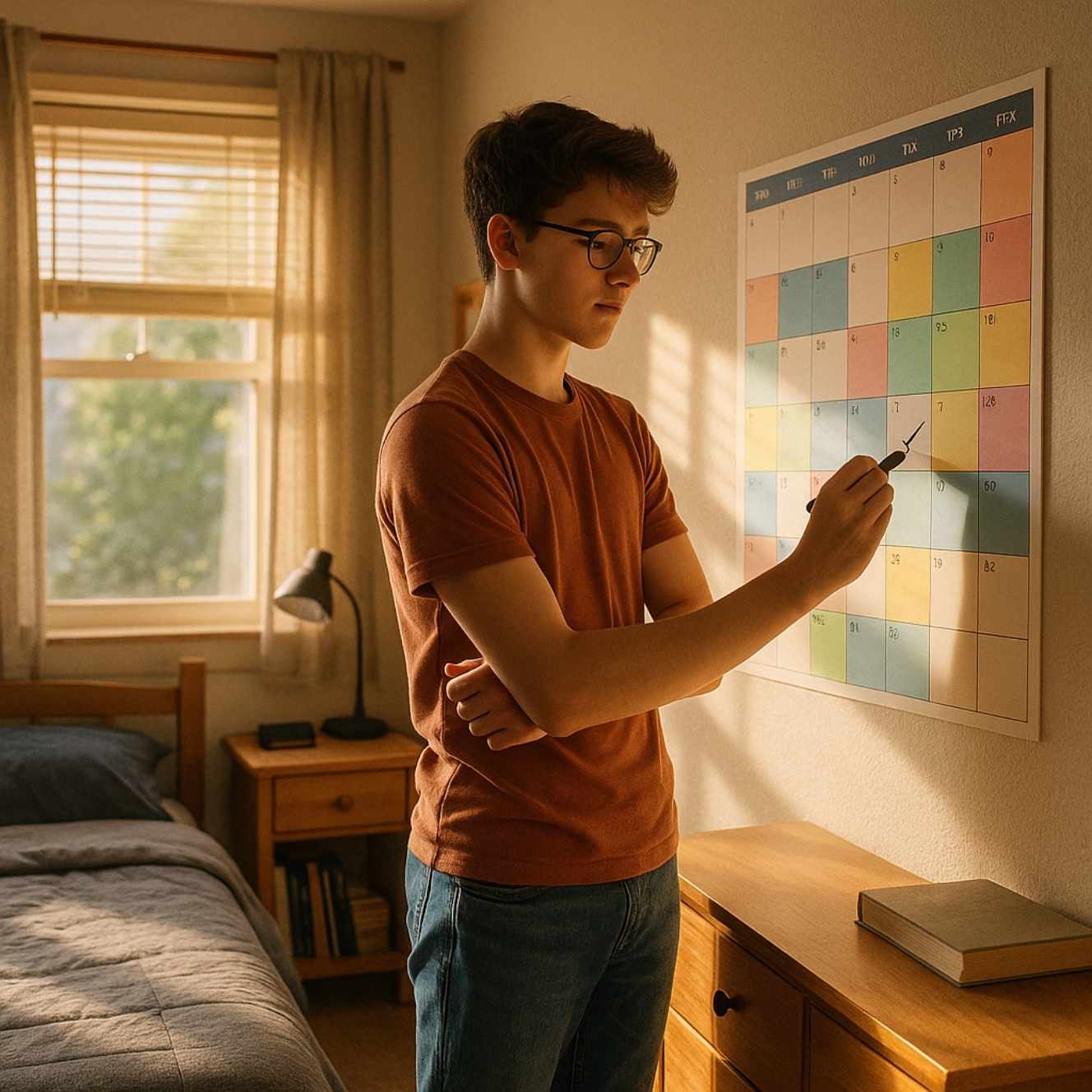Introduction
Responsibility during the teenage years goes far beyond remembering to charge a phone or finishing homework on time. It is the habit of owning one’s actions, meeting obligations, and considering how choices affect both self and others. Developing this skill set early fuels personal growth because it teaches problem-solving, builds credibility with parents and teachers, and prepares teens for the independent decisions required in college, work, and relationships. When a young person consistently proves dependable—returning borrowed items, admitting slip-ups, or meeting deadlines—trust grows naturally. That trust becomes a passport to greater freedom: later curfews, use of the family car, or leadership roles at school. Most important, practicing responsibility in small, everyday moments lays the groundwork for future success, because adults who can self-manage earn respect, enjoy stronger friendships, and adapt quickly to new challenges.
Understand the Value of Accountability
Being accountable means acknowledging mistakes instead of hiding them and actively working to make things right. For teenagers, this could look as simple as messaging a classmate to apologize after forgetting a group-project task, then proposing a recovery plan. Admitting errors shows maturity and signals that blame-shifting is off the table.
Accountability also involves recognizing how one person’s actions ripple outward. Skipping team practice, for instance, affects not only individual fitness but also the squad’s strategy and morale. By reflecting on those consequences, teens sharpen empathy and learn to factor others into future choices.
Honesty and integrity complete the triad. Whether returning extra change a cashier accidentally gave or refusing to exaggerate on social media for likes, doing the right thing—especially when no one is watching—builds an inner compass. Over time, that compass becomes second nature, guiding decisions long after high-school bells stop ringing.

Manage Time Wisely
Time management is the engine that powers every other form of responsibility. Creating a daily routine helps teenagers visualize the non-negotiables—classes, chores, sleep—and notice the blank spaces available for hobbies or hanging out. A written schedule or digital calendar can act like a coach on the wall, quietly reminding what comes next and reducing the mental load of remembering everything.
Setting personal goals—finishing a science project one week early or practicing guitar 20 minutes nightly—adds direction. Each small win teaches that progress is rarely accidental; it results from planning backwards from a due date and chipping away daily. Balancing responsibilities also means guarding downtime. Without adequate rest and recreation, motivation plummets and errors multiply, creating a negative feedback loop.
Helpful tools abound: color-coded planners, phone reminders, and focus apps that block distracting sites during study sessions. Using them wisely demonstrates self-awareness and frees the brain for deeper learning instead of last-minute scrambling. Over months, efficient scheduling becomes a life skill that makes future workloads—university papers, part-time jobs, personal finances—feel manageable rather than overwhelming.

Take School and Learning Seriously
Academics often serve as the first real arena where teenagers can demonstrate sustained commitment. Showing up prepared, participating in discussions, and meeting deadlines signal respect for both personal goals and classmates’ time. Treating school like a job—complete with performance reviews via report cards—cultivates professional habits that pay off later.
When roadblocks appear, the responsible response is to seek help early: ask a teacher to clarify, form a study group, or watch tutorial videos. This willingness to request support reflects humility, not weakness, and it accelerates mastery. Coupling that with self-discipline—turning off notifications while reading or sticking to an essay outline—prevents the perfectionism trap. Progress, not flawless output, should be the benchmark.
Celebrating incremental gains—raising a math grade by five points or cracking a tough coding concept—fuels intrinsic motivation. That mindset transforms learning from a chore into a toolbox for future ambitions, whether that is launching a startup, pursuing medicine, or crafting music.

Contribute to Household Responsibilities
Pitching in at home demonstrates that responsibility extends beyond personal tasks. Simple acts—loading the dishwasher without being reminded or watering plants—lighten the family workload and foster a spirit of reciprocity. Parents notice dependable behavior and often reciprocate with greater privileges, forming a virtuous cycle of trust.
Respecting shared spaces means cleaning up after cooking, returning tools to the garage shelf, or keeping noise low when others sleep. Helping younger siblings with homework or bedtime routines not only builds leadership but also patience and empathy. Such experiences mirror real-world teamwork scenarios, where success hinges on collaborative effort rather than solo brilliance.
Learning basic life skills early—budgeting weekly allowance, sewing a loose button, cooking a balanced breakfast—turns chores into confidence-boosting milestones. Mastery of everyday tasks ensures that moving into a dorm or first apartment will feel exciting rather than intimidating. Responsibility at home, then, becomes a rehearsal for self-sufficient adulthood.

Practice Self-Discipline and Decision-Making
Self-discipline is the quieter cousin of motivation; it gets to work even when inspiration snoozes. Making healthy choices—grabbing fruit instead of chips, limiting sugary drinks, committing to regular exercise—cultivates energy and focus that fuel academic and creative pursuits. Teens who practice moderation learn that pleasure and health are not mutually exclusive.
Resisting peer pressure starts with pausing to assess potential consequences: “Will vaping hurt my athletic performance?” or “Could sharing that meme cross a line?” Developing an internal pause button allows teens to weigh long-term goals against short-term thrills. Equally important is learning to say no without losing friendships: clear communication, humor, or suggesting alternative activities keeps social bonds intact.
Digital boundaries deserve special focus. Setting screen-time limits, muting push notifications during study hours, and curating social-media feeds to limit negativity protect mental health and preserve attention spans. When technology serves life goals instead of ruling them, teenagers gain a sense of control that spills over into other areas of responsibility.

Be Involved and Reliable in the Community
Taking responsibility beyond home and school expands perspective. Joining a cleanup drive, tutoring younger students, or organizing a charity bake sale reveals how individual effort can spark collective progress. These experiences foster gratitude and empathy—qualities that recruiters, scholarship panels, and future colleagues value highly.
Reliability matters as much as enthusiasm. Arriving on time, following through on promises, and communicating setbacks early prevent inconvenience and strengthen trust. Community leaders often remember dependable volunteers and may provide glowing references or future opportunities.
Volunteering also teaches transferable skills: public speaking during event kick-offs, budgeting for supplies, conflict resolution when opinions clash, and marketing to attract participants. Each project becomes a mini-internship in leadership and collaboration. By the time college applications ask for examples of responsible citizenship, teens who have served regularly will have authentic stories that illustrate maturity and initiative.

Conclusion
Cultivating responsibility during the teenage years is not a single leap but a series of deliberate steps: owning mistakes, managing time, valuing education, supporting family, mastering self-discipline, and serving the wider community. Each habit strengthens character and expands trust, unlocking freedoms that prepare young people for the complex decisions of adulthood. By practicing these principles now, teenagers build the resilience, respect, and independence that will carry them confidently into college, careers, and the lifelong journey of self-directed growth.





